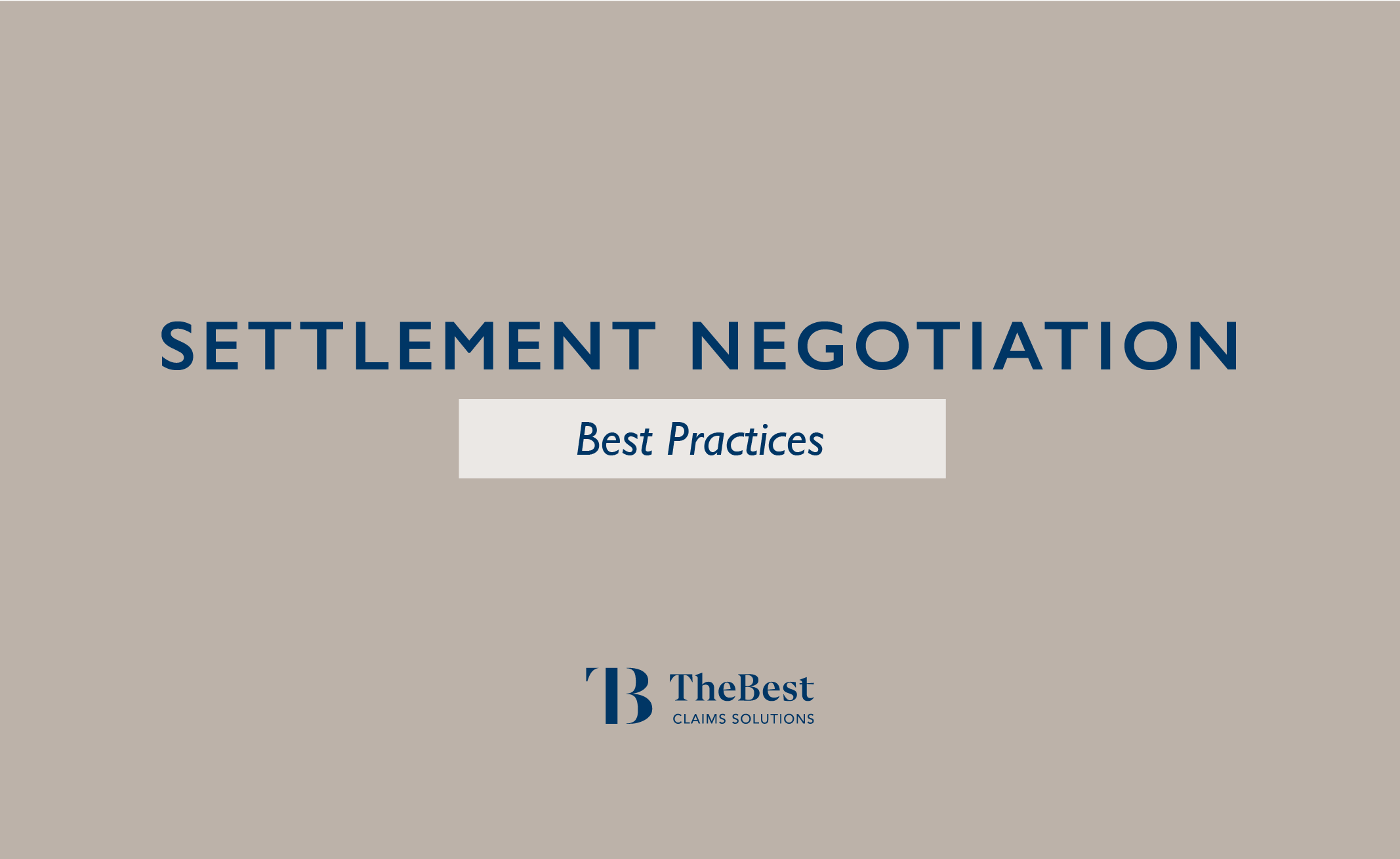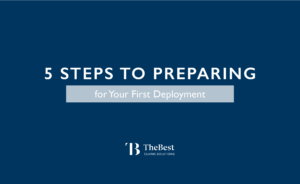One of the most difficult aspects of the claim process is handling settlement negotiations. Between balancing the carrier’s financial needs with the insured’s expectations, learning how to navigate both legal and emotional complexities with finesse is critical. Our very own Sam Barnes, VP of National Accounts, has put together his fool-proof strategy and best practices for settlement success.
1. Reassuring the Insured
When it comes to best practices for the settlement of a claim, we must start at the very beginning of the claim process. At the onset of a claim, most insureds are skeptical at best that their chosen insurance company or their assigned adjuster has their best interest in mind. We, as claim professionals, are always working against this preconceived notion and have to successfully navigate through and past this to earn their trust and provide a fair settlement.
It’s important to understand that most people do not file claims very often if ever. It is our job as claims professionals to not only help our insureds with their claim but to help them be comfortable throughout the claims process.
At the onset of a claim, most insureds are skeptical at best that their chosen insurance company or their assigned adjuster has their best interest in mind.
When we handle their claim, we must build rapport and establish trust. This is the heart of the path towards settlement. We do this by talking with our insured, helping to “translate” insurance vernacular into plain language, actively listening to their questions and concerns, learning where they are in the process, and educating them on anything that we determine they need to understand further. This could be related to a plethora of things including policy, endorsements, timelines, contractors, what their neighbor told them, and the list could go on and on.
2. Setting Expectations
Once we have established that rapport and trust, the next step is to set realistic and achievable expectations. Only through meeting and exceeding these expectations do we continue to build trust and push us towards the ultimate goal for ourselves and our insured, the timely closure of their claim with a fair settlement so they can get back to their regular lives!
Throughout the claim there could be times when it deviates from the normal handling and expectations need to be reset. The key to continued rapport, trust building, and a fair settlement, is communication. We always need to be in communication with our insured if there is any change in expectations, timelines, or anything where our insured needs to be updated. We continue our path toward settlement by always keeping our insured informed as we navigate the insurance claim handling process. As claims professionals, we have to remind ourselves that we do this many times, each and every day. Insureds do not, and we must keep that perspective in mind, so we are not desensitized to their experience, needs, and expectations that we set.
The key to continued rapport, trust building, and a fair settlement, is communication.
3. Leave No Questions
Remember, throughout the claim, we have been building rapport and trust by educating our insured and translating insurance vernacular into common language regarding inspection findings, insurance policy, coverage application, damage repair methods, etc. This all becomes the foundation we have built to settle the claim with our insured. With this foundation, we can thoroughly explain the settlement. In addition, we can discuss any further claim handling expectations like recoverable depreciation, and supplemental activity, and make sure to take time throughout to address any questions or concerns that our insured may have.
This is not the time to rush through the conversation. This is the time to ensure all questions and concerns have been addressed.
Every insured is keenly aware of how expensive their insurance coverage is, and they want to be sure they have been indemnified to the full extent possible. When we can take the time and put in the effort to make sure to educate, meet and exceed set expectations, and take the honor of settling a claim personally, we demonstrate that value to our insured. Furthermore, the “negotiation” has become a part of the entire process where we have made the insured’s whole claim experience and satisfaction the center of what we do. As claim professionals, these practices are what allows the settlement negotiation to be focused and fair for each individual insured while facilitating their contract accurately with their chosen insurance company.
4. Strive for Excellence
While it is in our nature to want to have negotiations and settlements be final, we also know and understand that insurance and claims are complex. The insureds leave with the confidence that we are always there and available for any other questions or concerns that they have.
The ultimate best practice for claim settlement negotiation is to take care and concern throughout the claim, and build rapport and trust with your insured, so when you are delivering the promise, aka, the settlement, your insured knows that you have taken care of them to the best of your ability and to the full extent of their policy. And remember, negotiation does not start at settlement, it starts from the very beginning of the claim. Strive for excellence in every interaction and know that every action being completed throughout the claim is building rapport, trust, and the foundation for a fair and accurate claim settlement!



